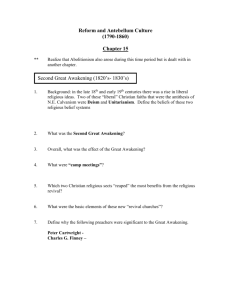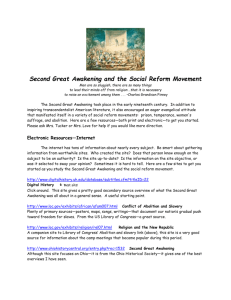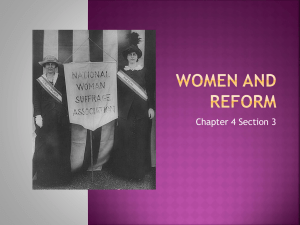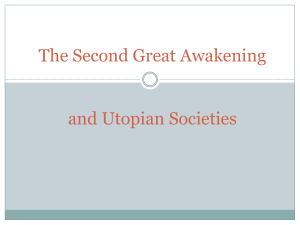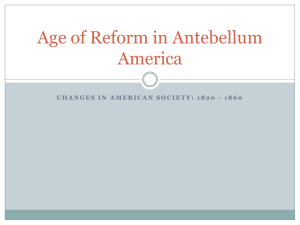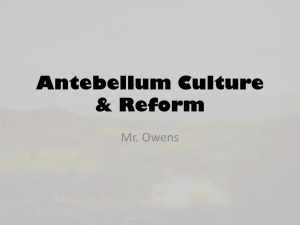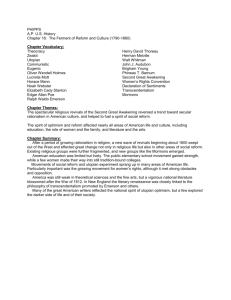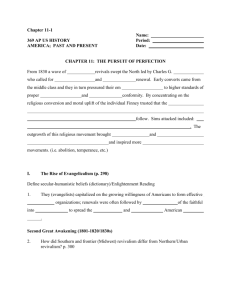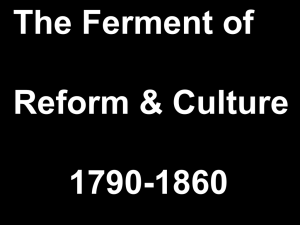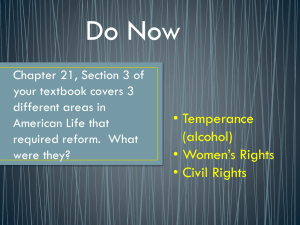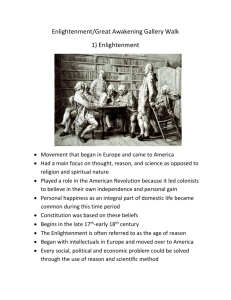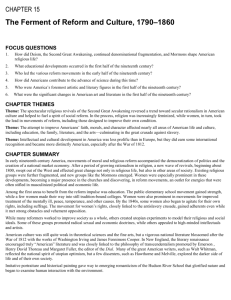PRE CIVIL WAR ESSAY 2 Influences of the 2nd Great Awakening.doc
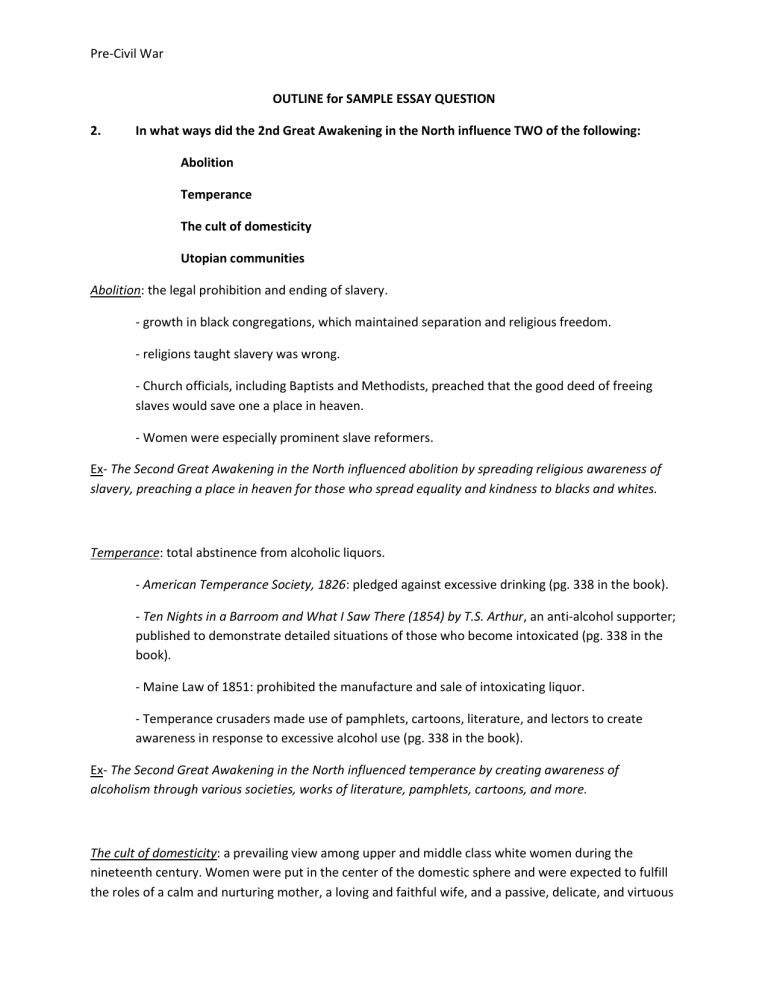
Pre-Civil War
2.
OUTLINE for SAMPLE ESSAY QUESTION
In what ways did the 2nd Great Awakening in the North influence TWO of the following:
Abolition
Temperance
The cult of domesticity
Utopian communities
Abolition: the legal prohibition and ending of slavery.
- growth in black congregations, which maintained separation and religious freedom.
- religions taught slavery was wrong.
- Church officials, including Baptists and Methodists, preached that the good deed of freeing slaves would save one a place in heaven.
- Women were especially prominent slave reformers.
Ex- The Second Great Awakening in the North influenced abolition by spreading religious awareness of slavery, preaching a place in heaven for those who spread equality and kindness to blacks and whites.
Temperance: total abstinence from alcoholic liquors.
- American Temperance Society, 1826: pledged against excessive drinking (pg. 338 in the book).
- Ten Nights in a Barroom and What I Saw There (1854) by T.S. Arthur, an anti-alcohol supporter; published to demonstrate detailed situations of those who become intoxicated (pg. 338 in the book).
- Maine Law of 1851: prohibited the manufacture and sale of intoxicating liquor.
- Temperance crusaders made use of pamphlets, cartoons, literature, and lectors to create awareness in response to excessive alcohol use (pg. 338 in the book).
Ex- The Second Great Awakening in the North influenced temperance by creating awareness of alcoholism through various societies, works of literature, pamphlets, cartoons, and more.
The cult of domesticity: a prevailing view among upper and middle class white women during the nineteenth century. Women were put in the center of the domestic sphere and were expected to fulfill the roles of a calm and nurturing mother, a loving and faithful wife, and a passive, delicate, and virtuous
Pre-Civil War creature. These women were also expected to be pious and religious, teaching those around them by their Christian beliefs, and expected to unfailingly inspire and support their husbands.
- Women suffragists:
- Lucretia Mott: a Quaker whose voice was not recognized at an anti-slavery convention, and became aroused with anger for this reason.
- Elizabeth Cady Stanton: co-founder of the National Women Suffrage Association and was a prominent battler for women’s rights. Fought for women’s equality in courts, workplaces, and voting polls. She had also read at the Senca Falls Woman’s Rights
Convention that the Dec. of Independence had declared “all men and women are created equal.” (pg. 340 in the book)
- Susan B. Anthony: co-founder of the National Women Suffrage Association and was a prominent battler for women’s rights. Fought for women’s equality in courts, workplaces, and voting polls (pg. 340 in the book).
- Amelia Bloomer: revolted against the current attire women were forced to wear. She chose to fight this by sporting a short skirt with Turkish trousers, or “bloomers.”
- Women sought to reform their female society, searching for the right to vote and gain nearly the same equality as the everyday man earned.
- Women fought temperance and the abolition of slavery in order to make their voices heard – like men, the Second Great Awakening had played a role in their lives. “They had been touched
by the evangelical spirit that offered the promise of earthly reward for human endeavor.” (pg.
339 in the book)
- Women who fought for their rights met at Senca Falls, NY at the Woman’s Rights Convention of 1848, which launched a women’s rights movement.
Ex- The Second Great Awakening in the North influenced the cult of domesticity by creating awareness of
Women’s Rights and the idea that females deserved and were capable of more than the cult of domesticity declared of their gender.
Utopian communities: any society governed by an ideal socio-politico-legal system; perfect.
- Mother Ann Lee (founded the Shakers; believed in strong work ethic and rejected sexual relations)
- societies formed to preach that all aspects of people's lives could be governed by their faith.
Pre-Civil War
- Shakers; a radical religious Utopian society. Known for their emphasis on social equality and rejection of sexual relations, and developed during Christ’s “second appearing,” preaching perfection of the human’s body and soul.
- transcendentalism: against the general state of culture and society; a belief of Utopian social change. Among their core beliefs was the belief in an ideal spiritual state that "transcends" the physical and empirical and is realized only through the individual's intuition, rather than through the doctrines of established religions – “idealism.”
- Ralph Waldo Emerson: leading transcendentalist.
Ex- The Second Great Awakening in the North influenced Utopian communities by emphasizing human perfection and developing cults that mastered in the perfect society.
